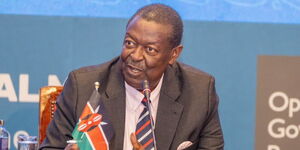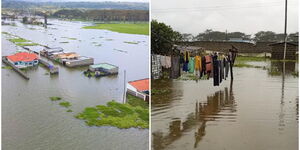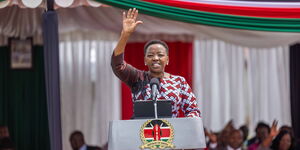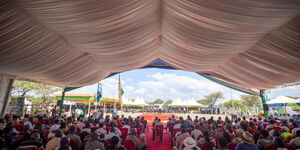The Kenya National Union of Teachers (KNUT) has called for the release of the Ksh 64 billion accumulated capitation funds to support the already struggling education sector.
Addressing the press on Monday, 3rd March, KNUT Secretary-General Collins Oyuu stressed that the delay in these funds has significantly hindered heads of institutions from running and managing schools effectively.
Oyuu further noted that the lack of capitation funds is the primary reason why some heads of institutions are opting to send students home even before the official closing dates.
"Why must capitation drag? How do you expect heads of institutions to manage schools, because you cannot use your own money to go and manage schools? At times when we hear heads of institutions and principals getting learners to go home early or for some time, we know the reasons," he stated.
"It is dangerous to keep learners in schools without capitation. And for those heads who are wise enough to avoid strikes in schools, I think they are doing their best," he added.
The heads of primary and secondary schools in the country have been calling for the release of the undisbursed capitation funds, as financial support to schools continues to decline amid a rise in enrolment—a situation that has pushed some schools into debt.
Furthermore, the delayed and reduced disbursement of capitation has also affected the availability of learning materials, payment of non-teaching staff, and the provision of meals for students and co-curricular activities in these schools.
Oyuu's sentiments come days after the Treasury Cabinet Secretary, John Mbadi, stated that the government would not pay the Ksh 64 billion, emphasising that there is no provision in the budget to disburse allocated but unreleased funds once the financial year lapses.
Speaking on Thursday, February 27, in an interview with Spice FM, Mbadi explained that the government operates on a cash-based budget, meaning that unutilised allocations do not roll over.
"It was budgeted for, but our budget is cash-based. If a financial year has ended and you didn't pay it, there's no money to pay later!" Mbadi said.
"We don't keep money somewhere. Who do we pay that money to if the capitation was not released?" he added.
The official capitation per learner under the Free Primary Education (FPE) programme is Ksh 1,420 per year, while that for junior school learners is Ksh 15,042 annually.
The Free Day Secondary Education (FDSE) programme provides Ksh 22,244 per student per year, but this has been reduced to approximately Ksh 15,000.












